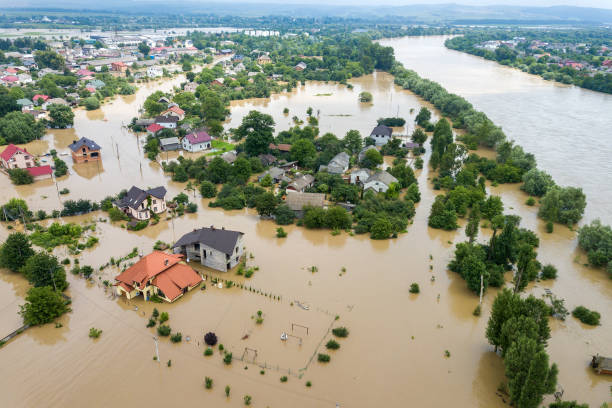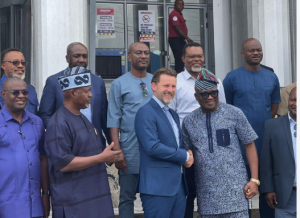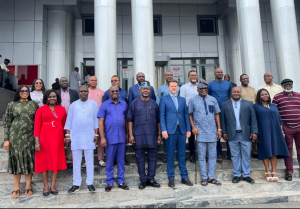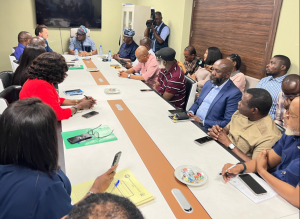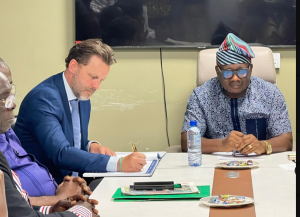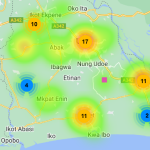
Niger Delta Weekly Conflict Update: August 25-31, 2024
August 30, 2024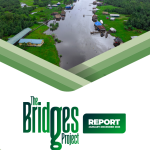
PIND BRIDGES PROJECT REPORT JANUARY – DECEMBER 2023
September 5, 2024Many communities in the Niger Delta are highly vulnerable to recurrent flood disasters due to their low topography, particularly in coastal and riverine areas. According to data from the Niger Delta Weekly Conflict Update of the Foundation for Partnership Initiatives in the Niger Delta (PIND) , flood disasters resulted in over 120 fatalities between January 2020 and April 2024. Since March 2024, with several communities in the Niger Delta experiencing severe flooding.
For instance, in March 2024, flooding caused by tidal surges destroyed more than 200 houses and displaced many residents in Odioma and Sangana communities in Brass LGA, Bayelsa State. In May 2024, heavy rainfall led to flooding that damaged the Edo State headquarters of the Independent National Electoral Commission (INEC) in Benin City, destroying voter registration machines and vehicles. Recently, on July 3, 2024, flooding also affected parts of the Diobu community in Port Harcourt, Rivers State.
To address these environmnetal challenges, the Niger Delta Development Commission (NDDC) has partnered with the United Nations Institute for Training and Research (UNITAR) to develop innovative technological solutions to combat environmental challenges, particularly flooding, in the region.
This initiative was announced during a courtesy visit by the team leader of the Strategy, Planning, and Coordination Section of the United Nations Satellite Centre (UNOSAT), Olivier Van Damme, to the NDDC headquarters in Port Harcourt.
Representing the NDDC Managing Director, Dr. Samuel Ogbuku, was Sir Victor Antai, the Executive Director of Projects, who said the partnership was necessary in tackling the region’s recurring flood problems. “We are committed to finding sustainable solutions to the perennial flooding issues in our region, as these challenges are beyond what the NDDC alone can resolve,” he stated.
Mr. Antai further expressed that collaborating with UNITAR was timely, given UNITAR’s expertise in training and empowering organizations to handle environmental issues effectively. He urged UNOSAT to develop long-term solutions to environmental problems such as flooding, stressing that temporary measures are insufficient for the challenges faced by the Niger Delta.
Highlighting the NDDC’s commitment, he noted, “We are focused on environmental conservation, including flood management, and are working with partners to implement AI-enhanced flood monitoring systems. Addressing the flood challenges in the Niger Delta requires collaborative efforts with various development agencies.”
On his part, the NDDC’s Director of Environmental Control and Protection, Onuoha Obeka, said that the Commission continuously seeks ways to improve its flood management strategies and overall development in the region. Mr Onuoha Obeka pointed out that the commission lacked the data necessary to foresee disasters. He noted that access to such data would improve planning for mitigating ongoing environmental challenges across NDDC states.
“Our partnership with UNOSAT will help us integrate and analyze geospatial information in a user-friendly format, enhancing disaster resilience and supporting sustainable development policies.” ‘’This partnership with UNOSAT will also enable us to train our staff in critical areas of flood and environmental management,” he added.
Ealier Mr. Olivier Van Damme, leader of the UNOSAT technical team, highlighted UNITAR’s mission to promote evidence-based decision-making for peace, security, and resilience through geospatial information technologies. He noted, “UNITAR has a history of collaboration with local authorities in the region, focusing on environmental conservation and flood management. ‘’Our goal is to enhance capacity and provide AI-driven flood monitoring systems.”
“We support governmental, non-governmental, and international organizations in enhancing their capabilities with tailored learning solutions,” he added.
Also present at the meeting were the NDDC, Executive Director of Corporate Services, Hon. Ifedayo Abegunde, and other senior officials from the Commission, who expressed optimism about the positive impact of the partnership on the region’s flood management efforts.
Overall, the collaboration between NDDC and UNITAR represents a significant step toward improving flood management and environmental conservation in the Niger Delta, addressing the pressing need for sustainable, data-driven solutions to mitigate the region’s recurrent flood challenges


